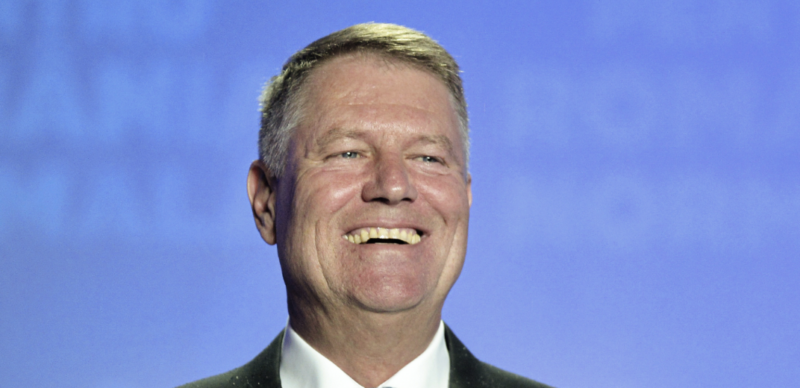Romania’s political turmoil deepened as President Klaus Iohannis, a former leader of the center-right PNL (EPP), firmly rejected calls for his resignation ahead of May’s repeated presidential election. Despite widespread perception that his legitimacy has expired—his term ended without a successor due to last year’s annulled election—Iohannis remains steadfast.
Speaking at the EU’s informal defense summit in Paris, the president dismissed opposition demands for his departure, labeling them as nothing more than “populist” and “electoral” rhetoric. He insisted his interim leadership—backed retroactively by the Constitutional Court (CCR)—is the only constitutionally sound path forward. Yet, Romania’s constitution lacks any clear guidance for such an extraordinary scenario.
The document states that a president serves a five-year term until their successor is sworn in. However, any extension requires an absolute parliamentary majority and can only occur under exceptional circumstances like war or natural disasters. If a president dies or steps down early, the Senate president assumes office until snap elections can be held.
That’s precisely why all four opposition parties are demanding Iohannis step aside, urging him to hand power to Senate President Ilie Bolojan—who leads Iohannis’ former party—until May’s election settles the matter. But Iohannis remains unmoved.
“I don’t think we need to talk about this,” he told reporters. “I don’t see any use in prolonged discussions about whether I should have stayed or not.”
Last month, opposition lawmakers attempted to suspend (impeach) him through a parliamentary vote but fell short, unable to muster enough support without defections from the ruling coalition—a bloc that includes the PNL, the socialist PSD (S&D), and the ethnic Hungarian UDMR (EPP).
Despite being ideological adversaries, the opposition factions—ranging from the nationalist AUR (ECR) and its hardline spin-offs, SOS Romania and POT, to the pro-EU, liberal USR (Renew)—have found common ground in their outrage. They accuse the establishment of “destroying democracy” by scrapping the election after its first round and insist the second round should take place instead of restarting the entire process.
Iohannis’ decision to remain in office has made him the face of government corruption and democratic backsliding. His approval ratings were already at rock bottom, closing out his second term at a mere 16%—the lowest for any Romanian leader in modern history.
Responding to his Paris remarks, USR leader Elena Lasconi doubled down, branding Iohannis “illegitimate” and making a stark comparison: “I think even Ceaușescu wasn’t as hated as Klaus Iohannis is.”
The December election was annulled after the first-round results unexpectedly placed independent nationalist Călin Georgescu in first and Lasconi in second—shutting out the traditional establishment candidates from advancing. The court justified its decision by citing alleged Russian interference, though two-thirds of Romanians reject that explanation, as no solid proof has been presented.
The European Court of Human Rights (ECHR) has yet to weigh in on the matter and declined to fast-track Georgescu’s appeal, meaning any ruling will come too late to affect the upcoming vote. Meanwhile, the Venice Commission—the top European authority on constitutional law—released its own expert opinion last week. It concluded that election results can only be overturned in “exceptional cases” with “clear, unequivocal, and publicly available” evidence of interference. In short, what happened in Romania didn’t meet that threshold.
Yet, Iohannis continues defending the court’s ruling. “The Venice Commission… makes some proposals on how the issues should perhaps be dealt with differently if somehow—I personally hope that the situation will not be repeated—if somehow something similar ever comes up,” he said. He also pointed out that it’s now up to Parliament to turn these recommendations into law—but only after the election re-run.
For now, Romania remains caught in a political quagmire, with a leader clinging to power and an opposition unwilling to let the matter rest.




